Meet us at

on 3rd & 4th October







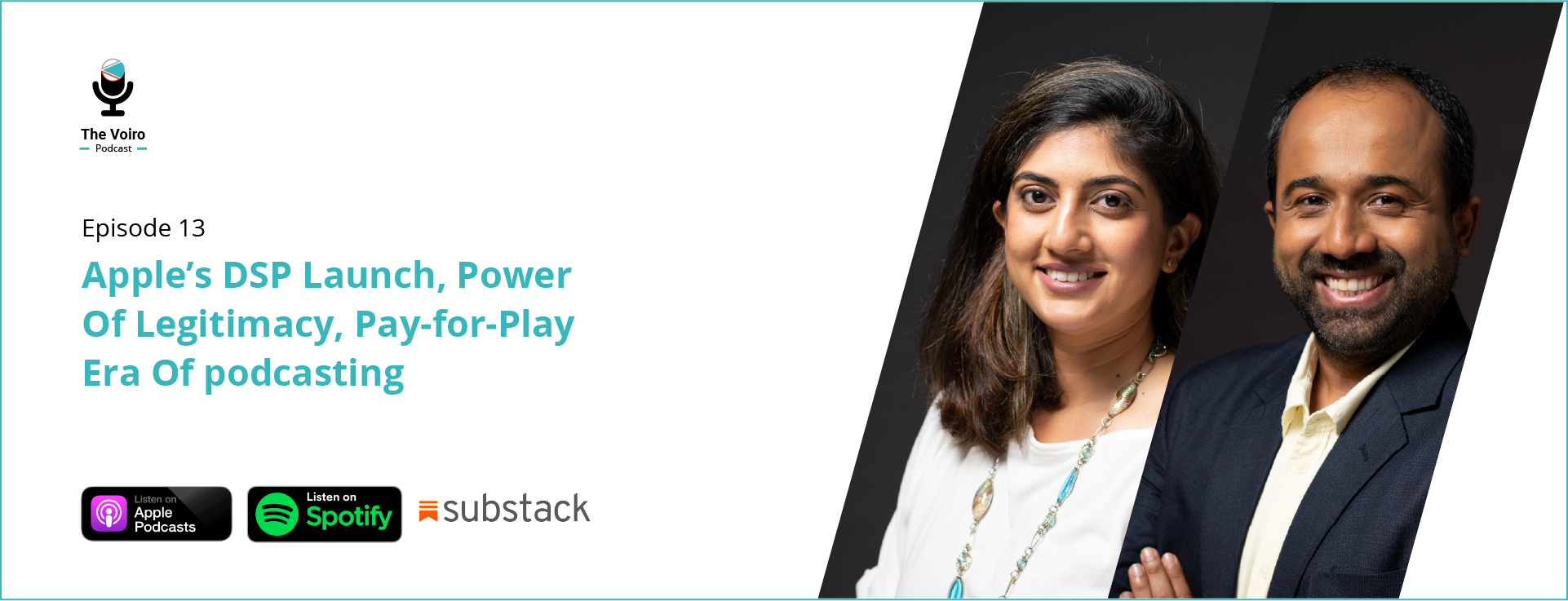
Also listen to this entire episode on:
🎧 Apple Podcast: https://apple.co/3Jw9Tkp
🎧 Spotify: https://spoti.fi/3Q1NcXD
🎧 Google Podcast: https://bit.ly/tvp-ep13-gp
The Voiro Podcast has seen many firsts in the last couple of months:
We launched our first podcast, ever
We deployed our first super-exciting, super-interesting monetisation newsletter, which is what you are reading now
And now we conclude our first season of 13 episodes.
Drum roll. 🥁
As we wrap up the final episode of Season 1 of the Voiro Podcast, we take a trip down memory lane and unravel some secrets. Like, did you know what’s common between the Voiro Podcast and the popular Netflix show House of Cards? Or that the first episode of the podcast was not the first one?
However, through it all, one thing we are grateful for is your unwavering support as we fumbled and found our way through the airwaves to bring you content that is engaging and informative.
We will be back soon with Season 2 of the Voiro Podcast, with news, views, and more from the world of ad tech and monetisation, and a few surprise guests as well.
And that’s a promise!
Like Frank Underwood said, “The nature of promises is that they remain immune to changing circumstances.”
But between now and then, there’s a lot happening in the world of Big Tech. Here is what’s making news this week.
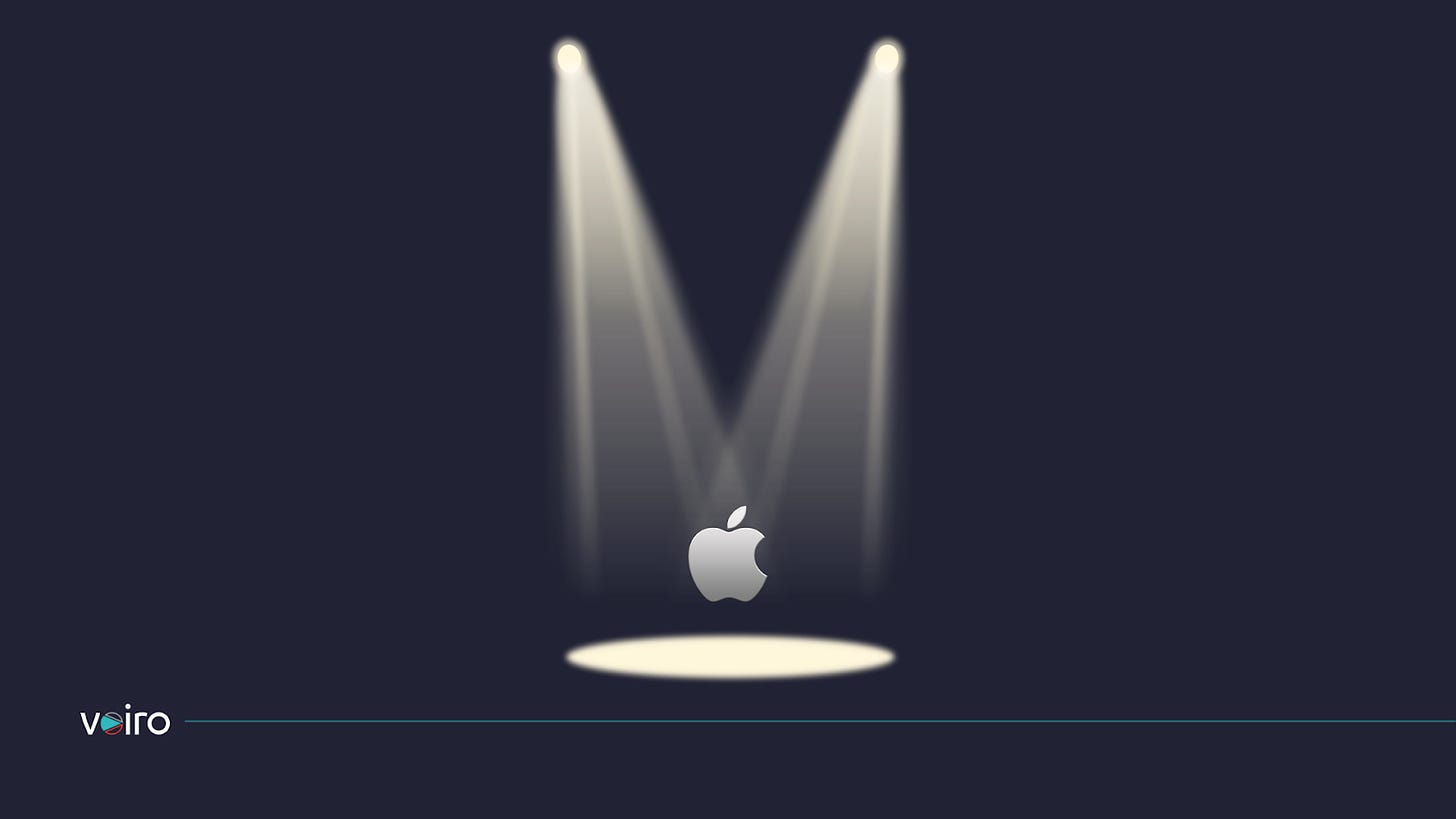
Apple has created a stir in the digital communities by posting a vacancy for a ‘senior manager for a DSP.’ According to the post, the person in charge will have to “drive the design of the most privacy-forward, sophisticated demand side platform possible.” With this job posting, Apple has put forth its statement of intent to build a DSP to grow its own digital ads business and make a bigger play for the media dollars.
The Voiro View:
Apple deeply understands its users and consumers and has shunned advertising for many years. Now, they are going to redo it. Considering their stance on privacy and protecting user identity, how they put that understanding and data to use will be exciting to see. The company also announced two ad placements in the app store and has so far disabled cookies in Safari and the use of their mobile advertising identifier IDFA. But, an interesting aspect to note is that advertising, which falls under Apple’s “services” revenue category, is one of the most lucrative avenues for the company, after the iPhone itself. Will this ad success come in the way of ATT? Rest assured, everyone will be watching Apple’s next moves to ensure they adhere to all the regulations. But if they manage to run a successful ad business without compromising the user’s privacy, they might just be able to solve the ads ecosystem.
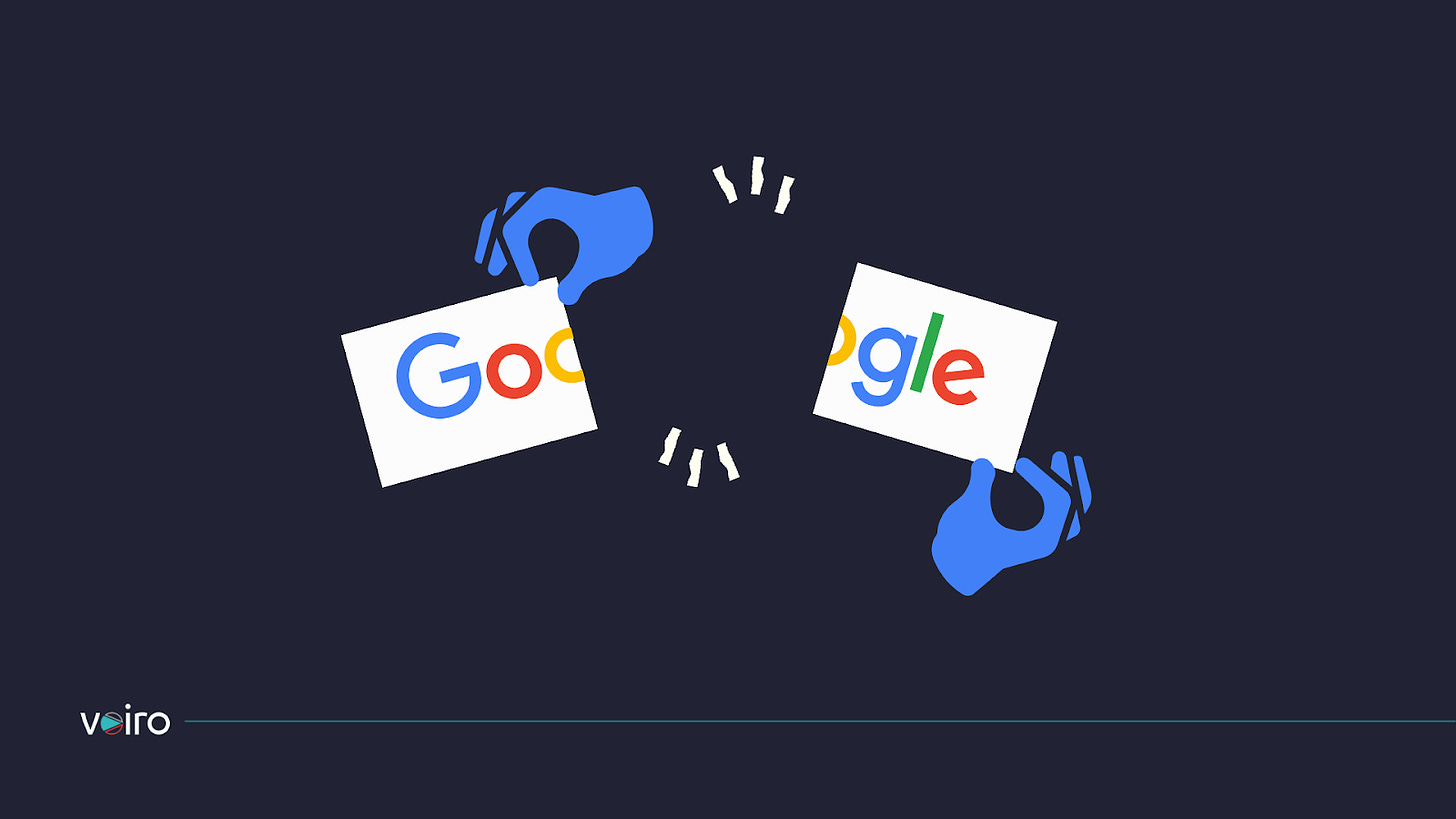
Ciaran O’Kane, CEO of WireCorp, takes a deep dive into what the Google ad tech stack will look like if broken up and why it will matter to independent ad tech. He breaks down the implications on the ad tech industry if Google follows through with the breakup. Following are some of them:
An untethered ad stack from Google will ultimately result in product decline
Without the Adwords (Google Ads) demand, new companies won’t be able to give away their ad tech for free, increasing competition around ad serving and media execution.
Independent ad tech can grab greater market share, ensuring a more competitive landscape.
Without its hold over ad tech, Google will not get to dictate metrics, allowing the industry to break free of Google-friendly solutions like last-click attribution.
The Voiro View
In a world where everyone’s moving toward more community-driven initiatives, it’s time for the big tech to understand the user as a person. These events show that big tech companies today are a little vulnerable because policymakers are now getting stronger and smarter. On the other hand, policymakers have had to reimagine their approach to technology because that’s where the consumers are. Today, they understand the importance of technology and how closely content, commerce, and tech are intertwined. The need of the hour is for policymakers to adapt faster to evolving tech to provide the guidelines and the much-needed framework for the players to operate in. The breakup of the Google ad tech stack will also allow for a more significant play for independent tech players. This will only lead to greater competition, innovation, and sound business decisions.

Alexis Ohanian, Founder of Reddit and Seven Seven Six, talks about the early days of Reddit and how the power of community and technology will drive the future of Web3. In this podcast, along with co-hosts Greg Isenberg and Sahil Bloom, he explores the concept of “minimum viable community” and his learnings from his early days at Reddit.
The Voiro View
Today, there is a focus on building content that’s community driven. It’s better for a creator to build a relationship with a smaller community of users built around a specific type of likes than to address a global audience with undefined preferences. Marketers have also been paying attention to social video trends and micro-communities and the kind of content they subscribe to. There’s a lot to learn about Web3 and its broader benefits, like how it’s more inclusive and beneficial to creators from a monetisation standpoint. But, the focus today is more on how to thrive based on a community rather than pandering to the needs of a big tech company or a platform.
Co-founder of Ethereum, Vitalik Buterin, talks about the fact that the only scarce resource everyone needs to consider is legitimacy. He defines legitimacy as this ‘higher order acceptance’ of events or protocols that can be driven by brute force, field, performance, fairness, or participation.
Media companies can now count on a new source of revenue as Instagram has rolled out a programme where companies get paid to post Reels with a ‘certain view count threshold’. While it’s unclear how the amount is calculated and the payments vary from company to company, media executives are intrigued enough to invest more energy into posting the Reels.
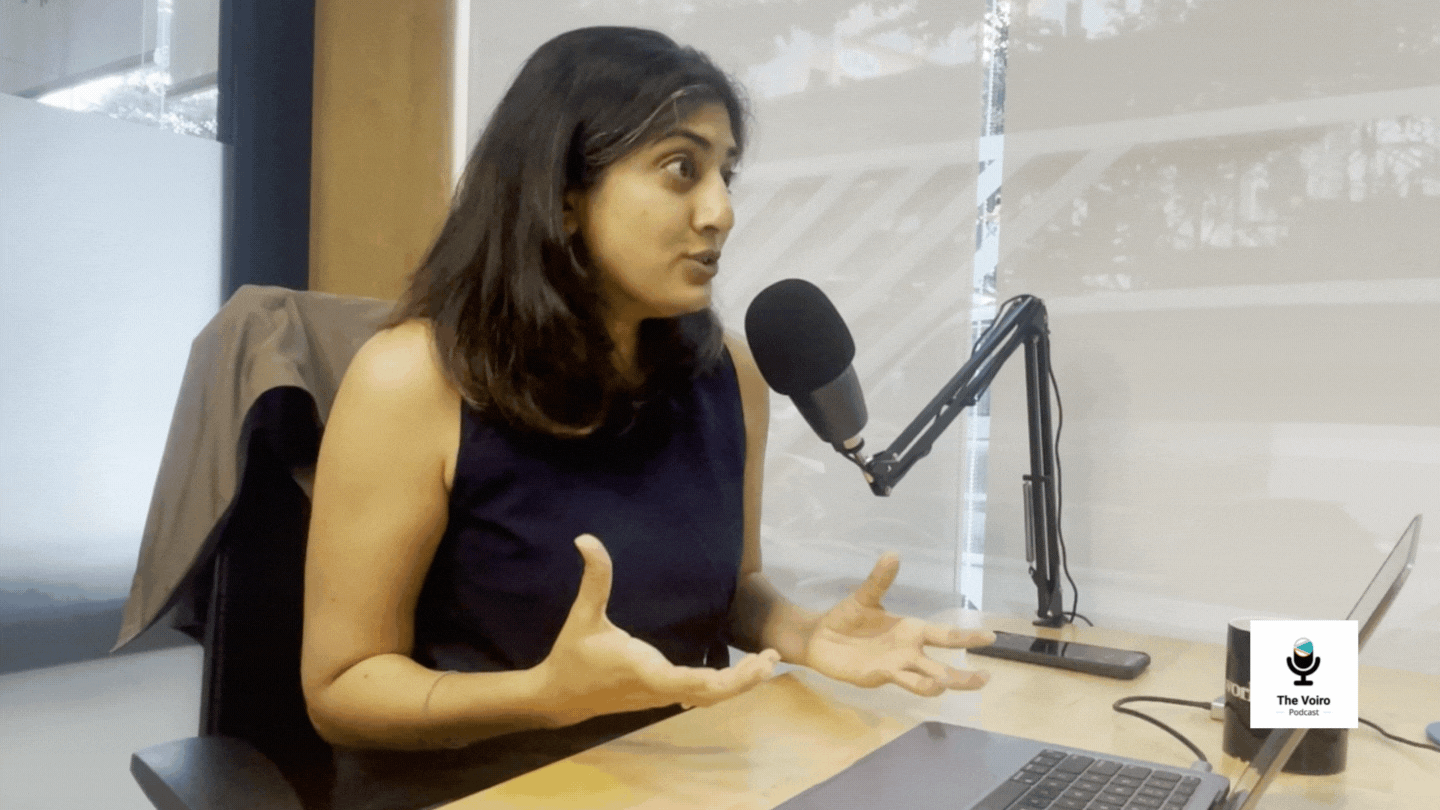
© 2024 Voiro. All rights reserved
